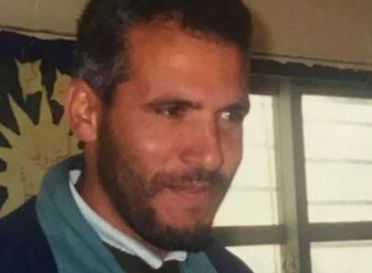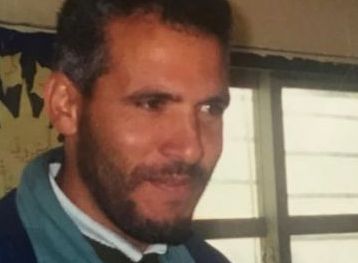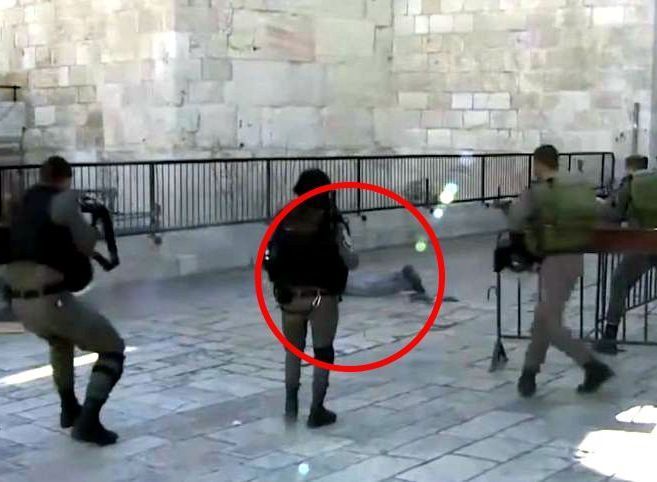Parents of Eyad al-Hallaq Petition Supreme Court Against State’s Decision Not to Appeal Against the Acquittal of the Police Officer Who Killed Their Son
The legal team representing the parents of Eyad al-Hallaq commented:
"In the first place, there was no justification for the delay of the PID and State Attorney's Office’s announcement of their extremely unreasonable decision not to appeal until the very last moment, just before the appeal deadline. Now, the Supreme Court's refusal to expedite the hearing on the petition further exacerbates the gravity of this legal ordeal, which may even inadvertently work in favor of the police officer responsible for Eyad al-Hallaq's death. This decision highlights a deeply flawed legal system where none of its components are willing to hold police officers accountable for the killing of Palestinians."
Today, 5 September 2023, Adalah - The Legal Center for Arab Minority Rights in Israel filed a petition to the Supreme Court, on behalf of the parents of the late Eyad al-Hallaq, along with the Meezaan Organization for Human Rights, against the decision of the Police Investigation Department (PID) and the State Attorney’s Office not to appeal the Jerusalem District Court's ruling that acquitted the Israeli Police officer who killed their son.
CLICK HERE to read the petition [Hebrew]
CLICK HERE to read more about the State Attorney’s decision
CLICK HERE to read the District Court ruling dated 6 July 2023
HCJ 6630/23 Rana Hallaq v. the Police Investigation Department et al.
Al-Hallaq, a 32-year-old autistic Palestinian man, was shot dead by an Israeli Border Police officer in Jerusalem’s Old City on 30 May 2020, while he was making his way to the special needs school where he both worked and studied. Eyad, who noticed two police officers shouting and running toward him, instinctively fled in fear. As the officers ran after him, the police commander, who was never prosecuted, shot twice towards Eyad. Eyad sought refuge in a nearby garbage shed, where another officer followed him, opening fire and shooting him in the lower body. The officer shot him again while Eyad was lying on the ground, already injured, killing him.
In October 2020, following a PID (also known as “Mahash”) investigation, it was announced that the police officer who shot Eyad would face reckless manslaughter charges. This is a rare occurrence as PID investigations almost never result in criminal charges against Israeli forces. However, on 6 July 2023, the Jerusalem District Court fully acquitted the Israeli Border Police officer who killed Eyad of the reckless manslaughter charges.
While the district court accepted the vast majority of the facts presented in the indictment, with only a few remaining disputed facts, it held that the police officer felt he was under a perceived threat and thus accepted his claim of “perceived self-defense.” On September 4, 2023, the State Attorney’s Office informed Eyad's family that it would not be appealing against the District Court's ruling. The State Attorney's Office informed the parents' attorneys about their decision not to appeal just two days before the final deadline for filing an appeal (Wednesday, September 6th), and thus, the petitioners also filed a motion requesting an expedited hearing in the petition.
The petition, submitted by Adalah Attorneys Fady Khoury, Nareman Shehadeh-Zoabi and Adi Mansour, along with attorney Khaled Zabarqa, argues that the decision of the PID and the State Attorney’s office is extremely unreasonable and requires the matter to be heard by the Supreme Court. The petitioners argue that the District Court's decision sets legal norms, and not appealing it would have severe repercussions. The decision essentially decreases the threshold that permits use of lethal force by police and has the ability to almost entirely eliminate accountability for police in cases of killing Palestinians. The judgment, as detailed in the petition, substantially and unreasonably expands the scope of self-defense in criminal law, relying on the officer's subjective perception of danger. The petitioners further argue that the court's emphasis on the fact that Eyad was shot in Jerusalem's Old City, "near the conclusion of Ramadan and Shavuot," as stated by the court, at the time of expected violent tension, indicates that the court has legitimized racial biases that, in the first place, led to the victim being labeled as a threat.
The petitioners further hold that the decision not to appeal reflects a flawed understanding of the legal ramifications of this case. The State Attorney's Office and the PID interpreted the court's decision as making purely factual determinations, which the Supreme Court typically does not intervene in. However, an analysis of the court's determinations makes clear that the court greenlighted an extrajudicial killing by deeming the deliberate shooting at the victim's center of the body a reasonable action, even in circumstances where there was no objectively perceived threat to life. The court based these determinations on, among other things, the officer's limited operational experience, the instructions he received regarding terrorism alerts, and even medical opinions regarding the potential behavior of the victim due to his special needs. According to the Jerusalem District Court, these factors resulted in the officer making a genuine mistake in understanding the situation and feeling a sense of threat. This, in turn, forms the basis for the self-defense exemption that absolves the officer from criminal liability, despite the unnecessary, unreasonable, and deadly shooting that killed Eyad al-Hallaq.
The decision of the PID and State Attorney's Office is therefore extremely unreasonable, as it fails to consider all relevant factors, including the public interest, the rule of law, the objectives of criminal law, considerations of accountability, the protection of the right to life, and the rights of the victim's parents.
The legal team representing the parents of Eyad al-Hallaq added:
“The District Court’s judgment significantly broadens the scope of exemptions from criminal liability, to shield police officers in the rare cases where they face trial for extrajudicial killings of Palestinians. Israeli security force officers are protected from criminal responsibility when they violate the law, relying on a subjective sense of danger, even if their actions are unreasonable given their distorted perception of the situation at the time of the incident. Setting such norms, which establish a distinct legal standard and grant leniency to police officers without relying on any factual findings, requires the relevant authorities to appeal such a decision. The decision not to appeal is extremely unreasonable, and warrants the intervention of the Supreme Court.”
Related Press Releases:
Adalah: Israel's move to charge cop who killed disabled Palestinian with reckless manslaughter
State Attorney Decides Not to Appeal Acquittal of the Officer Who Killed Eyad al-Hallaq




















